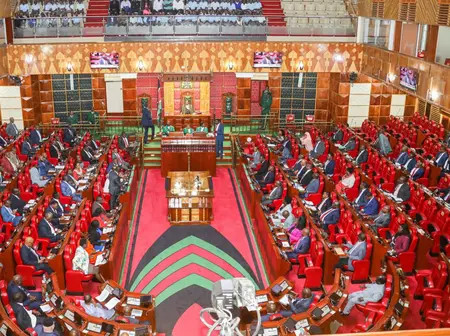Parliament has been asked to intervene on runaway loan charges that, according to a new petition, continue to trap Kenyans in cycles of debt despite existing laws meant to protect borrowers.
The petition was brought forward by lawyer Allen Waiyaki Gichuhi of Wamae & Allen Advocates, who wants the Consumer Protection Act, Cap. 501, amended to anchor the in duplum rule.
The rule is designed to ensure that once a loan becomes non-performing, the total interest charged cannot exceed the outstanding principal.
When passing the petition to MPs, Speaker Moses Wetangula explained that the petitioner believes the law is not being properly enforced, even though the rule already appears under Section 44A of the Banking Act.
He said the submission warns that many lenders continue to pile interest, penalties, and assorted fees far beyond the borrowed amount.
“These practices have resulted in violation of consumer rights under Article 46 of the Constitution and exposed Kenyans to unfair deprivation of property,” Wetangula told MPs.
The rapid spread of digital credit firms has deepened the problem.
Many of these lenders are often accused of levying hidden or extremely high rates, particularly on motorbike operators and low-income earners.
The result has been growing calls for Parliament to create firm rules for the sector.
In his proposals, the petitioner is seeking clear answers on when exactly the in duplum rule should come into effect, whether it should extend to penalties and default charges as well as interest, and how uniform systems of loan restructuring and recovery can be implemented across the industry.
He also suggests that borrowers who have already suffered under unlawful charges should be allowed legal redress, such as refunds or set-offs against their debts.
The matter is now in the hands of the Public Petitions Committee, which has been instructed to review it and provide feedback to both Parliament and the petitioner.
If acted upon, the reforms could reshape Kenya’s lending environment, potentially protecting vulnerable borrowers from the steep costs that have long characterised credit in the country.

Leave a Reply